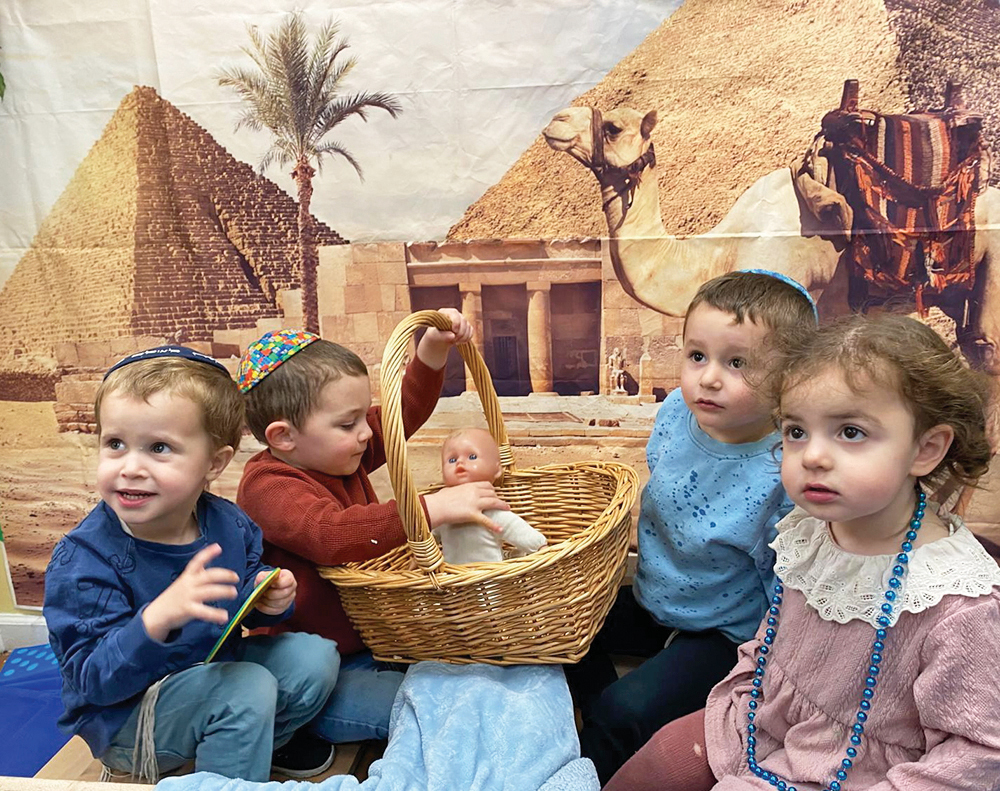As an Orthodox Jewish male who davens the prescribed three times a day, I never miss a day. As an early riser, I typically start my morning prayers at the earliest possible time (i.e., netz, aka vatikin), which is usually about an hour before sunrise; then I turn to my secular duties. And as a health-conscious person who continues to wear a mask when I leave home, I, acting on my doctor’s advice, have davened only in outdoor minyanim since COVID struck three years ago.
Since then I have not set foot in a shul for a prayer service (who knows who in the adjacent pew is vaccinated or takes other safety precautions seriously?), davening in the safety of my New York City apartment. My job ended three years ago, a victim of COVID, so my bayit also serves as my bait tefillah.
When I begin singing Hashem’s praises each morning, I have noticed, I am not alone. At that time, outside my window, the birds start chirping and tweeting and twilling. Robins and pigeons, sparrows and starlings have lead roles. While not distinguished aesthetically, these breeds excel vocally. For their pre-sunrise nusach.
The “dawn chorus,” in the language of bird watchers. It is most evident in the spring, which scientists explain is the season when birds are looking for mates to take part in breeding, and which Judaism recognizes as the season of rebirth and regeneration.
When were the birds silent?
At Matan Torah. Rabbi Abbahu said in the name of Rabbi Yochanan, “When God gave the Torah” at Mount Sinai “no bird was chirping … no creature uttered a sound … throughout the entire world there was only a deafening silence as the Divine Voice went forth speaking, ‘I am the Lord your God.’”
The birds, during the giving and the accepting of the Torah, “when it was morning” (Ex. 19:16), recognized that the only fitting sound was Kol Hashem.
Since then, they have resumed their routine. Since then, it is proper for them to issue their daily clarion call—and for us (descendants of the generation that was afraid of hearing God’s holy, unfiltered voice) to listen to His winged messengers before dawn breaks.
For people like me, who are already awake, their chirps are a spiritual wake-up call, clearly audible before the sounds of traffic and the other noise of a city rousing itself assault our ears. The chirps are music to my neshama.
If I have forgotten to open my siddur on time, they remind me. Every day.
Is the timing a coincidence?
Why does the time when halacha permits me to don tallit and tefillin and begin my daily prayers coincide so closely with the local avian population’s vocal habits? What message is “nature”—i.e., God’s control of His creations’ instincts—sending? What does this confluence tell us about our own nature?
Chazal say we can learn proper middot from the animal kingdom. Birds are prominent in this instructive group.
In the dark, the birds can sense—they have a sixth sense that we lack—that the day is about to begin. They are not a monolith; not all of them start their days at the same time. Are all birds, and the sounds they make, identical? No. Neither are we or our prayers.
Ramban offers the explanation that the Hebrew word for bird, tzippor, is derived from tzafra (morning), because birds wake up early in the morning and start their serenade.
According to halacha, tefillah can begin when the first sliver of sunlight can be seen in the horizon. According to bird experts, birds are wide awake as soon as the faintest ray of the sun is visible in the sky.
This is not an exact science; birds’ cycles are not calibrated to the minute (apparently the birds of Queens are not Yekkes!), but in lieu of a luach, it’s a good bet that if they have begun their morning avodah, I can begin mine.
The “language” of animals has long fascinated me, and birds are among the most eloquent. Every sound they make means something, understood by their winged compatriots and the Dr. Doolittles in our midst. When the birds sing, is it meant for their nest-mates’ ears, or God’s, or ours?
Birds hold a special place in Jewish thought—notably the dove, which the Babylonian Talmud (Berachot 53b) compares to the Jewish people; which the Vilna Gaon calls a symbol of the human soul; which Song of Songs Rabbah calls a symbol of Bnei Israel; which chazal cite as an example of monogamy and fidelity. The dove is an early riser.
And the rooster, which, in rural areas, wakes up the human inhabitants; which we bless every morning as the animal to whom God gave “the intelligence to distinguish between day and night” (based on praise for God in Job [38:36], “Who has given understanding to the rooster?”).
Thank God, no roosters on my street; my neighbors would not appreciate their loud presence at 4 a.m.; birds like robins, with softer voices, are more acceptable.
I’m partial to robins; ubiquitous in North America, they once were the state bird of New York, where I have spent most of my life; and, impervious to cold weather, they are not particularly migratory, which means they are visible—and audible—the whole year.
“As soon as one starts,” writes chasidic bird-watcher and environmental scientist Arnie Gotfryd in an essay, “Birds of Pray,” “the next one chimes in and within minutes, the whole neighborhood is alive with song.
“Sometimes I wonder,” Gotfryd writes, “if the folks who invented congregational prayer studied the birds first to see how it’s done.”
In Jerusalem, it’s doves.
Before I had traveled to Israel several decades ago, I heard a rumor that when the worshippers at the Kotel take their three steps backwards to begin the Shemoneh Esrei, the birds who nest in the crevices of the wall circle fly overhead, in an arc surrounding the minyanim. I was there one morning for a story I was writing on netz minyanim in Jerusalem.
It was no rumor. Before I looked down into my siddur, I looked up at the sky. A flock of doves were in a round formation whose circumference encircled the people at prayer.
One striking similarity between birds’ schedules and daveners’: the lag time between first tallit and sunrise is not constant, not always exactly one hour; it’s longer in summer, when a “halachic hour” is longer, and shorter in winter, when the in-between time corresponds to that season’s shorter halachic hours.
Same for birds—they began singing a longer time before the sun’s first rays appear in summer; a shorter time in winter.
Coincidence?
I don’t think so; nature’s alarm clocks keep in sync with our tefillah.
God, shomei’a tefillah, hears them all. Our words and birds’ chirps.
Islam shares this spiritual outlook; according to the “About Islam” website, Muslims who pray the Fajr prayer at dawn observe that “no matter where you are in the world, you can hear birds making up an orchestra of chirping their different melodies … Every day at Fajr time, without exception, the birds wake up and prepare to start their day.”
The scientific explanation for this pre-sunrise phenomenon—birds start chirping in the morning because, among other reasons, they are a) trying to attract mates; b) marking their territory; c) showing that they are in good health; d) announcing that they have located a good food source.
Of course, the early bird …
Whatever their motivation, the birds are a constant presence.
Their sounds ask an implied question: If the birds are up already, without fail, in any weather, doing their God-given duty, what’s my excuse? Are the birds more loyal than I am?
This morning, I’ll answer with my tefillah.
When I want to know when I can commence davening, I’ll have two choices.
I can look at myzmanim.com on my laptop.
Or I can listen outside my window.
By Steve Lipman













